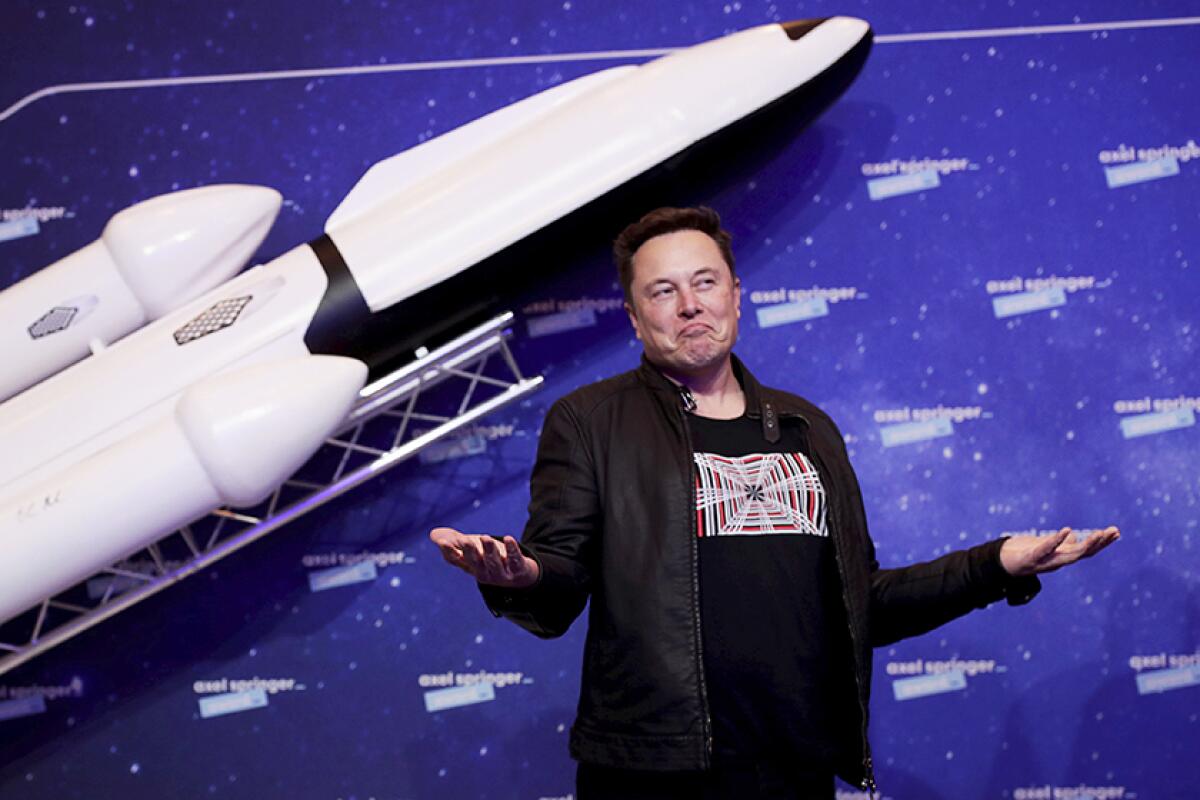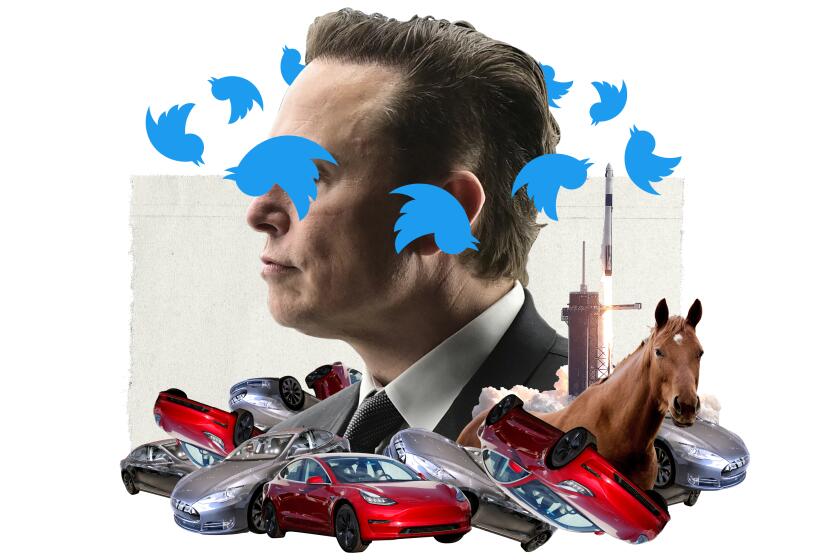Elon Musk’s Mars dream takes center stage at Tesla pay package trial

- Share via
The chair of Tesla’s board of directors testified in court Tuesday that Chief Executive Elon Musk’s dream of interplanetary travel played a role in the extraordinarily rich pay package the board granted him in 2018.
Musk “needed to pursue his goal of one day achieving interplanetary travel,” Tesla Chair Robyn Denholm testified in Delaware Chancery Court. But, she said, the board wanted to ensure he paid sufficient attention to Tesla. Asked for more detail, she said, “Quite honestly, I don’t know how much it costs to do any interplanetary travel.”
Musk is scheduled to testify Wednesday.
Tesla is being sued in the Chancery Court of Delaware by stockholders who say the board was not independent of Musk but instead was under his thumb when it offered a pay incentive plan worth as much as $55 billion. Board members have testified that Musk exercised no control over the board’s decision. Under law, the board’s decision must be independent of the pay-plan recipient.
Musk’s current No. 1 rank on Bloomberg’s list of the world’s wealthiest individuals is based on an estimated $185 billion in personal wealth.
Denholm was also asked how much she knew about Musk’s compliance with a consent decree Musk signed in 2018 with the Securities and Exchange Commission. Her answers were vague.
Elon Musk’s track record as a boss is an endless scroll of impulse firings, retribution, tone-deafness on race — and the impregnation of a subordinate.
The consent decree arose from fraud charges Musk faced after tweeting that a deal had been struck with Saudi Arabia’s wealth fund to take Tesla private. Musk’s tweet caused a surge in Tesla’s stock price; the SEC determined the claim to be false and accused Musk of stock manipulation.
Under the decree, Musk is required to run any tweets that are “material” to Tesla past a designated attorney. In an earlier deposition, Musk said he would send such tweets to the attorney and wait for an answer. If no answer came, he would post the tweet. He said he didn’t recall ever receiving a response to his tweet permission requests, and couldn’t remember how long he’d wait before posting.
The trial judge asked Denholm directly whether she was aware that Musk was posting tweets after waiting for some unspecified time.
“No, I was not aware of that,” she said.
The lawsuit alleges that the performance-based stock option grant was negotiated by the compensation committee and approved by Tesla board members who had conflicts of interest because of personal and professional ties to Musk, including investments in his companies. It also alleges the shareholder vote approving the compensation plan was based on a misleading proxy statement.
The proxy wrongly described members of the compensation committee as “independent,” the lawsuit says.
The Associated Press contributed to this report.
More to Read
Inside the business of entertainment
The Wide Shot brings you news, analysis and insights on everything from streaming wars to production — and what it all means for the future.
You may occasionally receive promotional content from the Los Angeles Times.












